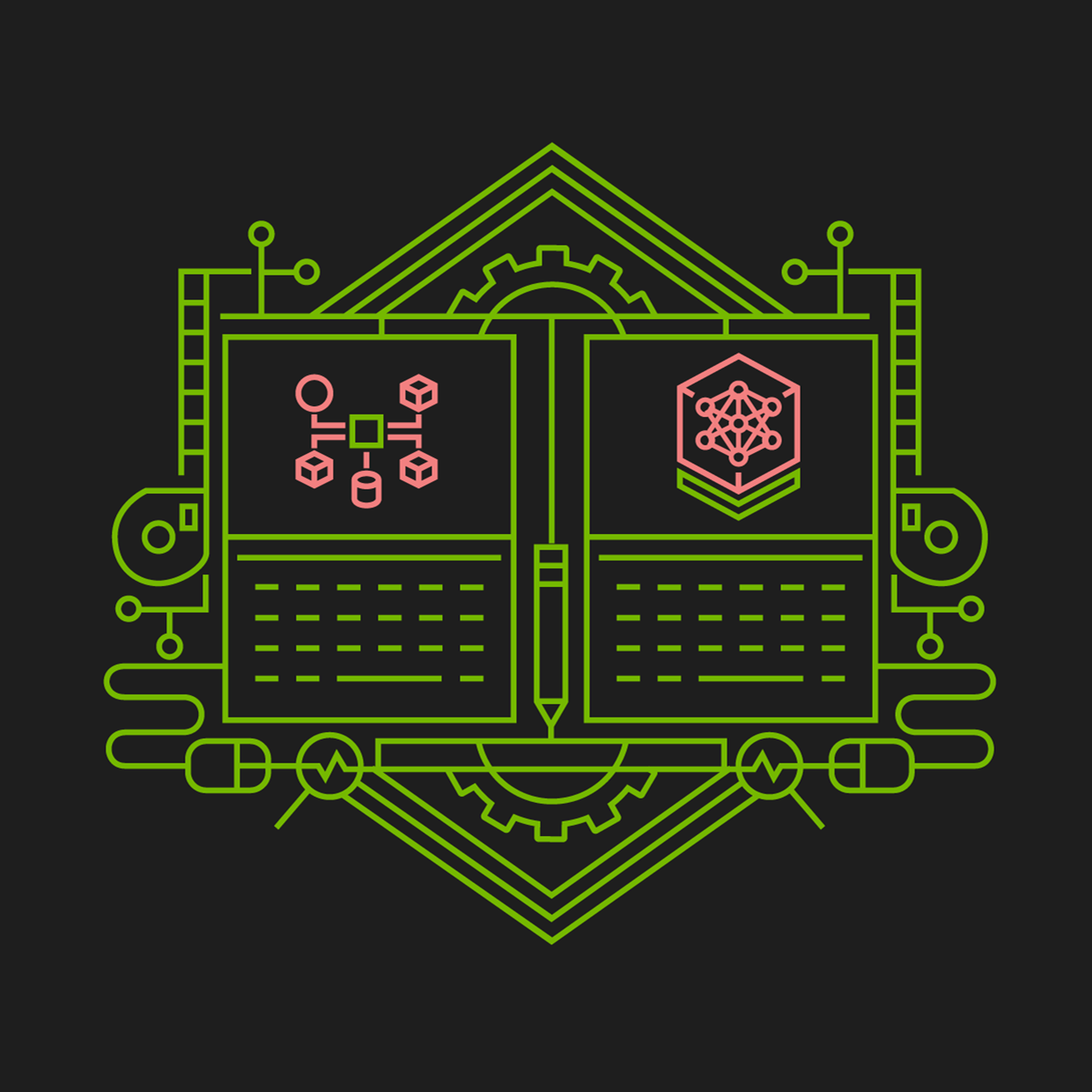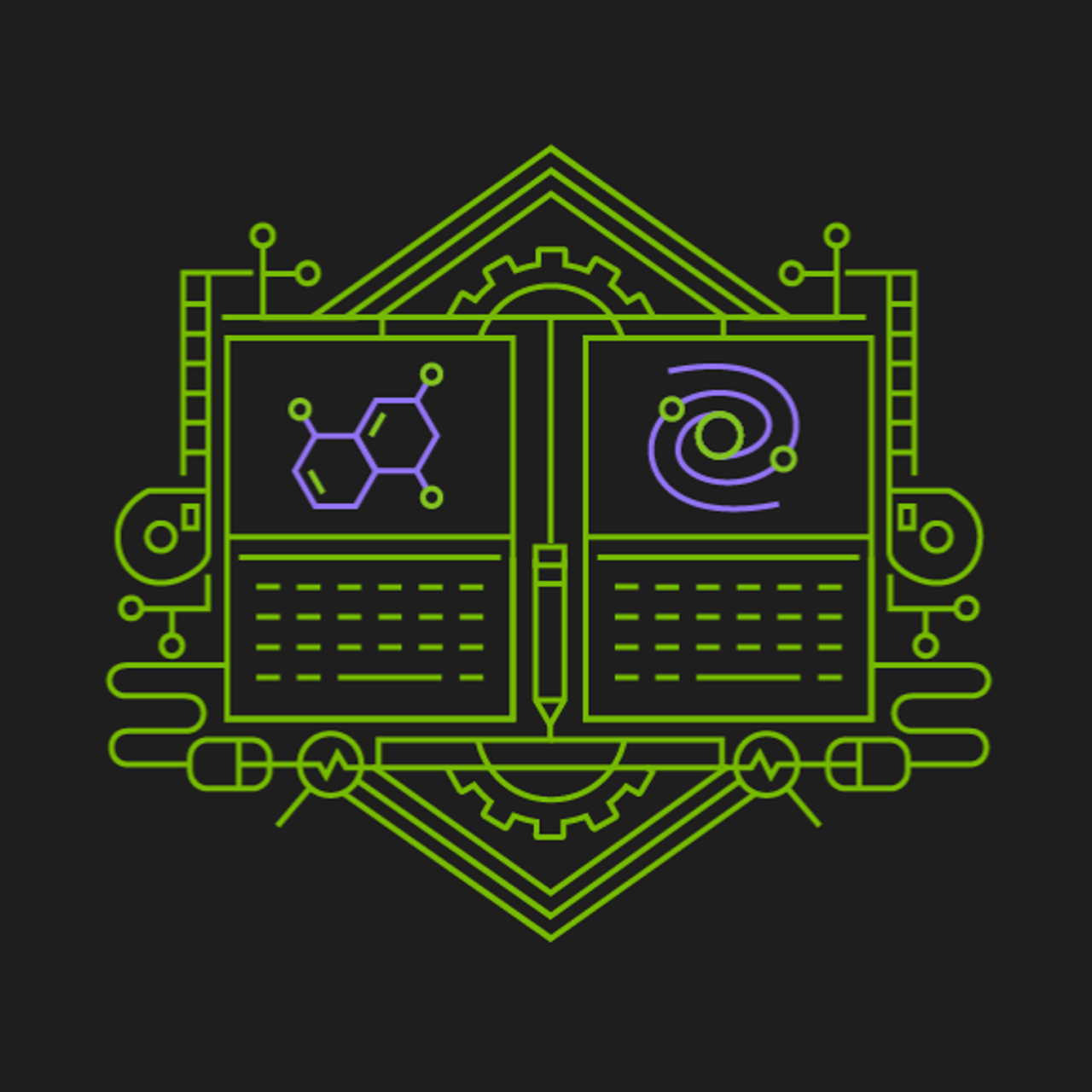NVIDIA DLI Teaching Kit Program
The NVIDIA Deep Learning Institute (DLI) Teaching Kit Program provides access to downloadable teaching materials and online courses to help university educators incorporate GPUs into their curriculum. Co-developed with leading university faculty, Teaching Kits provide full curriculum design coupled with ease-of-use. Educators can bridge academic theory with real-world application to empower next-generation innovators with critical computing skill sets. Most Teaching Kits are also available as ready-made Canvas LMS courses!
What's Included?
Lecture Materials
Slides
Videos
Hands-on Labs
Cloud compute credits
Jupyter notebooks
Coding projects
Sample solutions
Free* Online Courses
Full suite of courses leveraging GPU-accelerated servers in the cloud
Certification opportunities
Certification exams
Supplemental Content
Ebooks
Quizzes
Teaching Kits
The NVIDIA DLI Teaching Kits include downloadable instructional materials and online courses that provide the foundation for understanding and building hands-on expertise in areas like accelerated computing, data science, deep learning, graphics, and robotics.
Teaching Kit program members are eligible to receive codes for free* access to DLI online, self-paced training for themselves and their students—a value of up to $90 per course, per student. Each course includes a self-paced learning environment with access to a GPU-accelerated workstation in the cloud. Students only need a web browser and internet connection to get started.
* Subject to limits and approval by program administration

Accelerated Computing
Co-developed with Professor Wen-Mei Hwu and his team at University of Illinois (UIUC) and Professor Sunita Chandrasekaran and her team at University of Delaware, the Accelerated Computing Teaching Kit covers introductory and advanced accelerated parallel computing topics, including:
Introduction to CUDA C
Memory and Data Locality
Thread Execution Efficiency
Memory Access Performance
Parallel Computation Patterns
Efficient Host-Device Data Transfer
OpenACC, MPI, OpenCL
Unified Memory
Dynamic Parallelism
Multi-GPU Systems
CUDA Library Usage
Available in English, Portuguese, and Russian.

Data Science
Co-developed with Professor Polo Chau and his team at Georgia Tech and Professor Xishuang Dong and his team at Prairie View A&M University, the Accelerated Data Science Teaching Kit covers fundamental and advanced topics in data collection and preprocessing, the RAPIDS computing framework, distributed computing, machine learning, and graph analytics. This kit includes the following modules:
Introduction to Data Science and RAPIDS
Data Collection and Preprocessing (ETL)
Data Ethics and Bias in Data Sets
Data Integration and Analytics
Data Visualization
Scalable and Distributed Computing
Machine Learning
Neural Networks
Graph Analytics
GPU-accelerated Data Science
Available in English and Japanese (translated by Shiga University).

Deep Learning
Co-developed with Professor Yann LeCun and his team at New York University (NYU), the Deep Learning Teaching Kit covers introductory and advanced deep learning topics, including:
Introduction to Machine and Deep Learning
Applied Image Classification
Applied Object Detection
Convolutional Neural Networks
Applied Image Segmentation
Energy-based Learning
Unsupervised Learning
Generative Adversarial Networks
Recurrent Neural Networks
Natural Language Processing
Available in English, Japanese, and Russian.

Edge AI and Robotics
Co-developed with Ajit Jaokar and his team from the University of Oxford and Patty Delafuente and her team from the University of Maryland Baltimore County, the Edge AI and Robotics Teaching Kit includes lecture slides and hands-on labs centered around edge AI computing, internet of things (IoT), intelligent video analytics, and autonomous robotics. The kit’s focused modules cover:
Introduction to Edge AI
Vision Deep Neural Networks (DNNs)
Diversity, Ethics, and Security
Autonomous Robotics
Reinforcement Learning
Conversational AI
Available in English and Chinese.

Generative AI
The Generative AI Teaching Kit, co-developed with Assistant Professor Sam Raymond
from Dartmouth College, explores the practical implementation of Generative AI with NVIDIA GPUs through hands-on experimentation with Large Language Models (LLMs), Diffusion Models for image and video, multimodal LLM architectures, distributed model training and accelerating inference. The full kit modules will include:
Introduction to Generative AI
Word Embeddings, Tokens, and NLP
Large Language Models and the Transformer
LLM Scaling Laws and LLM Families
Multimodal Learning and its Applications
Diffusion Models in Generative AI
Model Training (Pre-Training, Instruction Following, and PEFT)
LLM Orchestration
Scaling Model Training to Distributed Workloads
Available in English.

Science and Engineering
Co-developed with Professor George Karniadakis and his team at Brown University, this Teaching Kit has dedicated modules for physics-informed machine learning (physics-ML) due to its potential to transform simulation workflows across disciplines, including computational fluid dynamics, biomedicine, structural mechanics, and computational chemistry:
Primer on Python and Scientific and Deep Learning Libraries
Deep Neural Network Architectures, Training and Optimization
Physics-informed Neural Networks
Neural Operators
Data and Uncertainty Quantification
HPC and the PhysicsNeMo Framework
Available in English.
Teaching Kits in Action
Resources
Community Forum and Support
Please read our FAQs, visit our forum, and email us with any questions, feedback, or suggestions.
Learn MoreDLI Online and
Instructor-led Courses
The NVIDIA Deep Learning Institute (DLI) offers hands-on training in AI and accelerated computing to solve real-world problems. Participants can earn certifications to prove subject matter competency and support professional career growth.
Learn MoreCertified Instructor Program
Experienced educators can get certified as DLI Ambassadors and deliver hands-on DLI workshops to university faculty, students, and researchers at no cost.
NVIDIA Academic Grant Program
Advance your research with world-class computing resources. Now accepting proposals for academic research projects in a variety of topic areas.